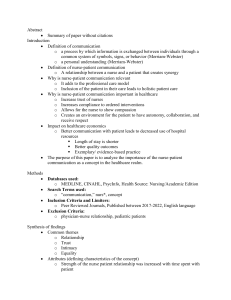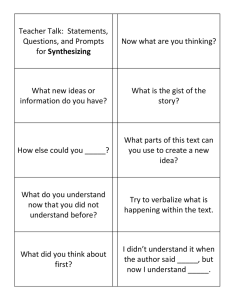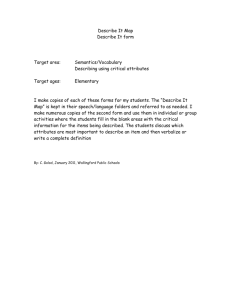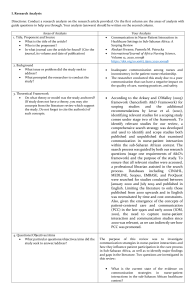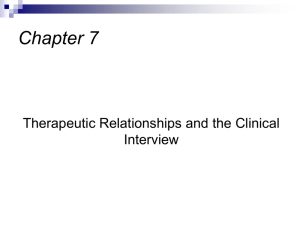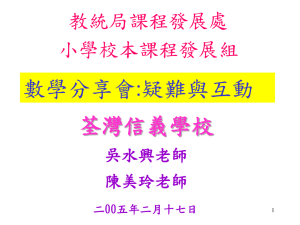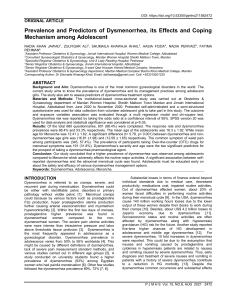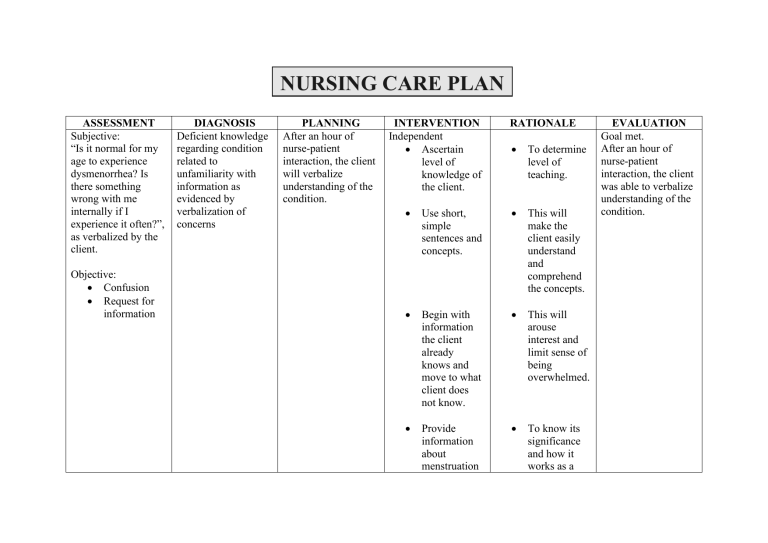
NURSING CARE PLAN ASSESSMENT Subjective: “Is it normal for my age to experience dysmenorrhea? Is there something wrong with me internally if I experience it often?”, as verbalized by the client. Objective: • Confusion • Request for information DIAGNOSIS Deficient knowledge regarding condition related to unfamiliarity with information as evidenced by verbalization of concerns PLANNING After an hour of nurse-patient interaction, the client will verbalize understanding of the condition. INTERVENTION Independent • Ascertain level of knowledge of the client. RATIONALE • To determine level of teaching. • Use short, simple sentences and concepts. • This will make the client easily understand and comprehend the concepts. • Begin with information the client already knows and move to what client does not know. • This will arouse interest and limit sense of being overwhelmed. • Provide information about menstruation • To know its significance and how it works as a EVALUATION Goal met. After an hour of nurse-patient interaction, the client was able to verbalize understanding of the condition. in teens including menstrual symptoms. normal and healthy part of being a female. • Discuss menstrual cramps, its types, associated symptoms and causes thoroughly. • Providing facts relevant to what she experience reduce further confusion. • Provide for feedback and evaluation of learning. • Validates current level of understanding and identifies areas requiring follow-up. • Provide written information for client to refer to as necessary. • This reinforces the learning process. NURSING CARE PLAN ASSESSMENT DIAGNOSIS Subjective: Fear related to change in health • The client states that she status did not experience any unusual discomforts until early middle last year when she turned 18. • The client states she is afraid because her aunt had her uterus removed because of frequent severe dysmenorrhea. PLANNING After 2 hours of nurse-patient interaction, the client will verbalized accurate knowledge of and sense of safety related to current situation. INTERVENTION Independent • Ascertain client’s perception of threat represented by the situation. RATIONALE • Defines scope of individual problems and influences choices of intervention. • Discuss the client’s perceptions and fearful feelings. • Promotes an atmosphere of caring and provides opportunity for dealing with concern. • Provide opportunity for questions and answer honestly. • This enhances sense of trust and nurseclient relationship. • Explain the relationship between disease and symptoms. • Providing accurate information promotes understanding EVALUATION Goal met. After 2 hours of nurse-patient interaction, the client was able to verbalize accurate knowledge of and sense of safety related to current situation. of why the symptoms occur, allaying anxiety about them. • Encourage use of relaxation techniques like deep breathing. • Provides active management of situation to reduce feelings of helplessness.
